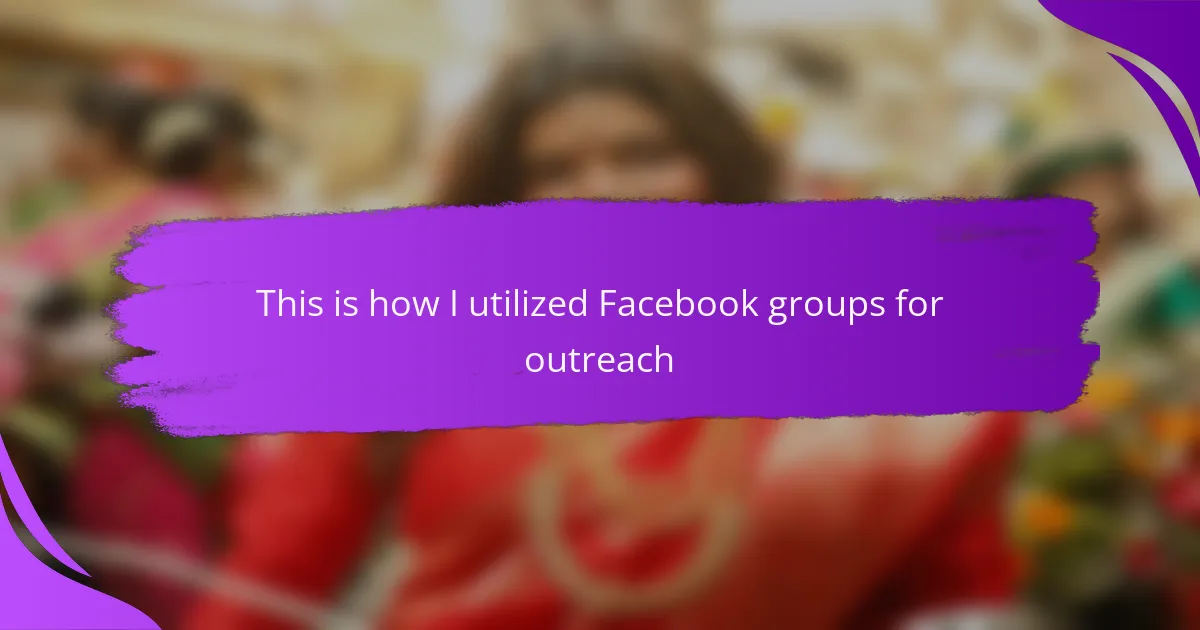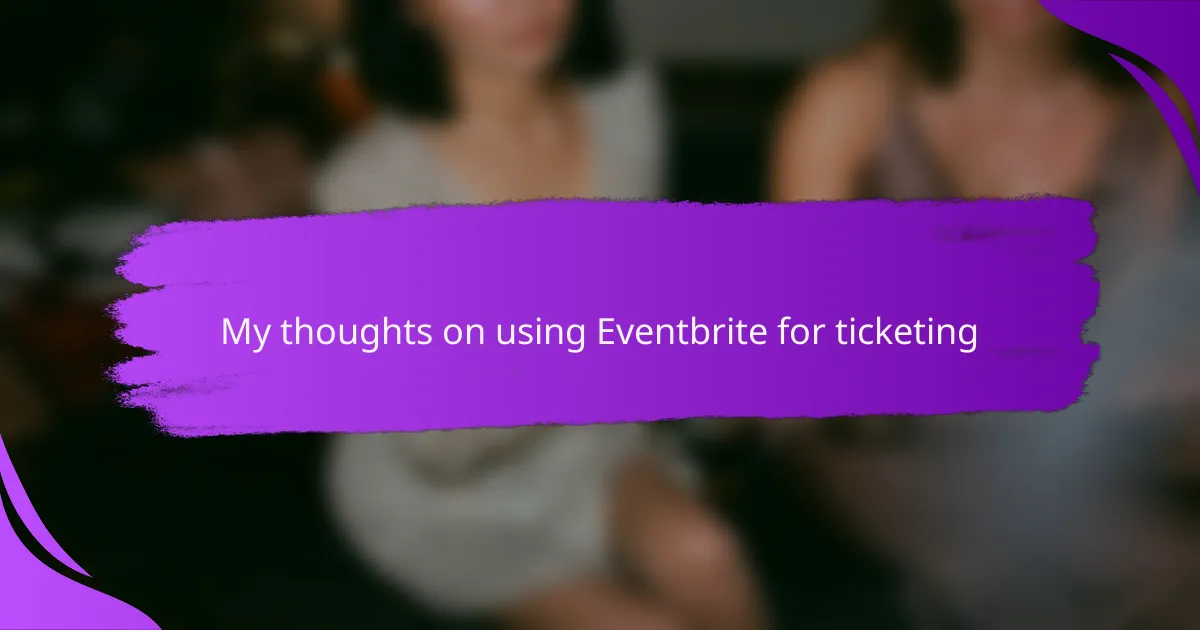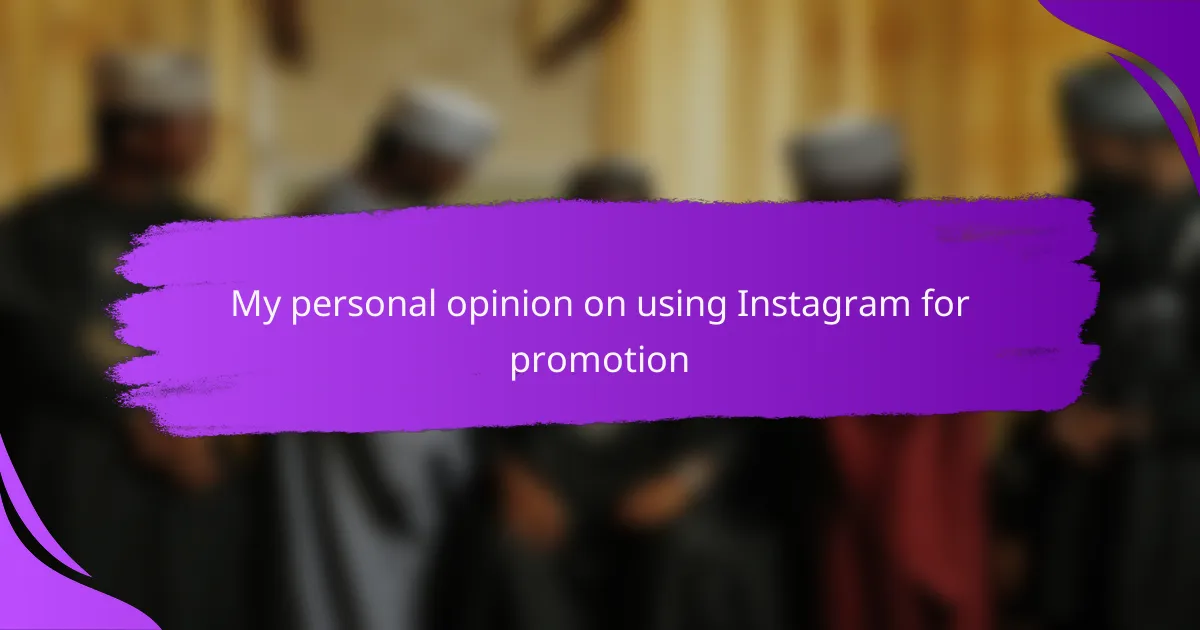Key takeaways
- Effective communication and personal engagement with volunteers foster a strong sense of community and motivation.
- Clear roles, responsibilities, and a checklist enhance organization and confidence among volunteers.
- Utilizing individual strengths and interests can transform volunteer tasks into memorable experiences.
- Training programs and ongoing support are essential for volunteer engagement and operational success during events.
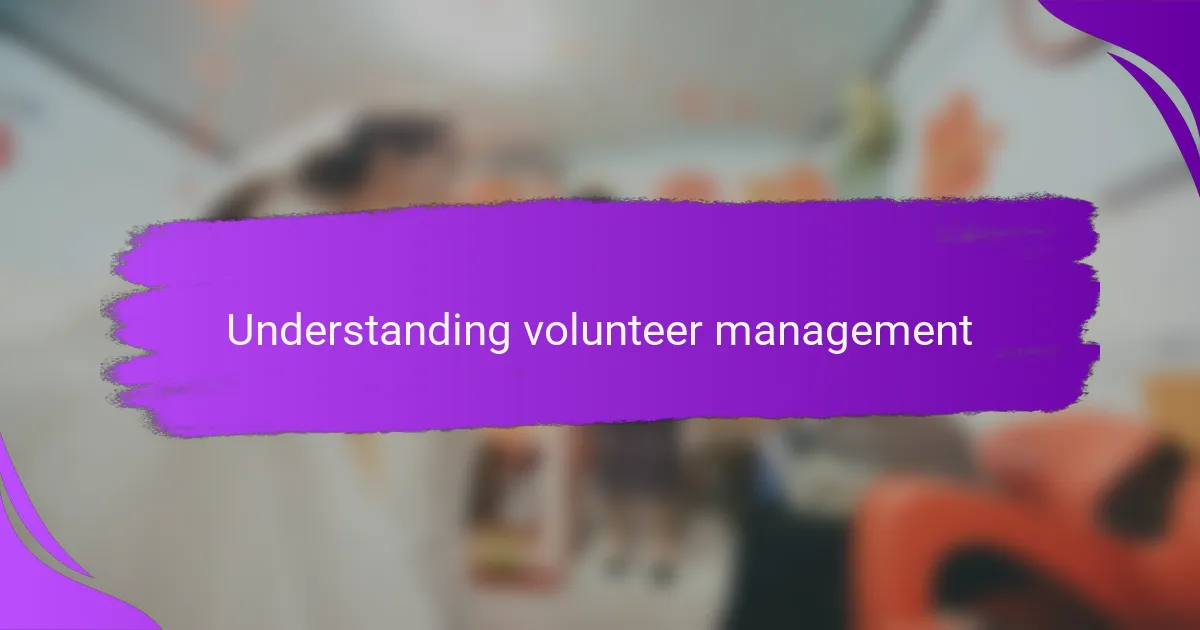
Understanding volunteer management
Understanding volunteer management is crucial in creating a smooth festival experience, especially in a vibrant atmosphere like nightclub events. I’ve found that effective communication fosters a strong sense of community among volunteers. When I took the time to personally engage with each volunteer, sharing stories and showing appreciation, it not only motivated them but also created lasting friendships.
One key aspect of managing volunteers is recognizing their individual strengths and interests. I remember pairing a volunteer who loved music with DJ setups. Their enthusiasm shone through, making the experience enjoyable not just for them but for everyone around. This personal touch can transform a routine task into a memorable experience.
Another important factor is providing clear roles and responsibilities. I utilized a simple checklist for tasks, which clarified expectations and allowed volunteers to feel confident in their contributions, leading to a more organized event overall.
| Aspect | Management Strategy |
|---|---|
| Communication | Engage personally for building rapport |
| Utilizing Strengths | Assign roles based on volunteer interests |
| Clarity of Roles | Provide checklists to clarify responsibilities |
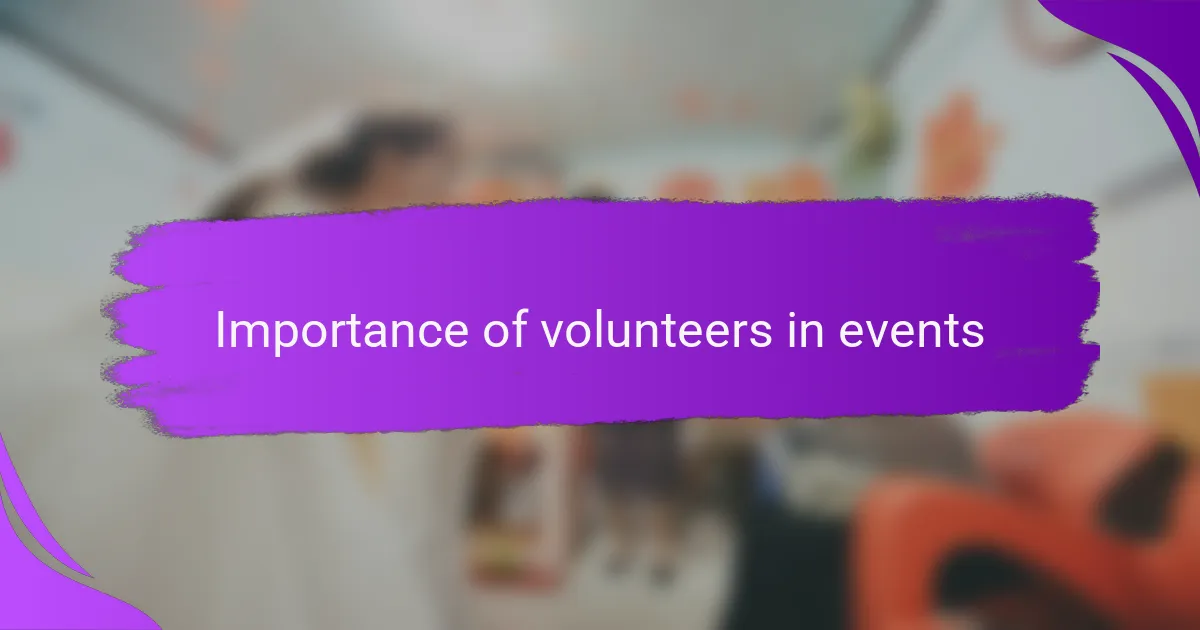
Importance of volunteers in events
Volunteers are the heartbeat of any event, especially in the dynamic environment of festivals. I remember a particular night when a volunteer stepped up at the last second to help with technical issues. Their quick thinking alleviated the tension and ensured the music kept playing. Moments like that highlight how volunteers can save the day and elevate the overall experience for everyone involved.
The enthusiasm and energy volunteers bring to an event can be infectious. I once had a volunteer who radiated positivity, and their excitement about the festival spread to attendees and crew alike. It made me realize that when volunteers feel valued and engaged, they naturally enhance the atmosphere, creating memorable experiences that resonate throughout the crowd.
Moreover, having volunteers allows for a more personalized experience for attendees. I’ve seen how volunteers often take the time to connect with guests, offering recommendations and making them feel welcome. This personal touch not only cultivates a sense of community but also fosters loyalty—a crucial element for anyone in the entertainment industry. Have you ever noticed how just one friendly face can change your perception of an event? That’s the power of a dedicated volunteer.
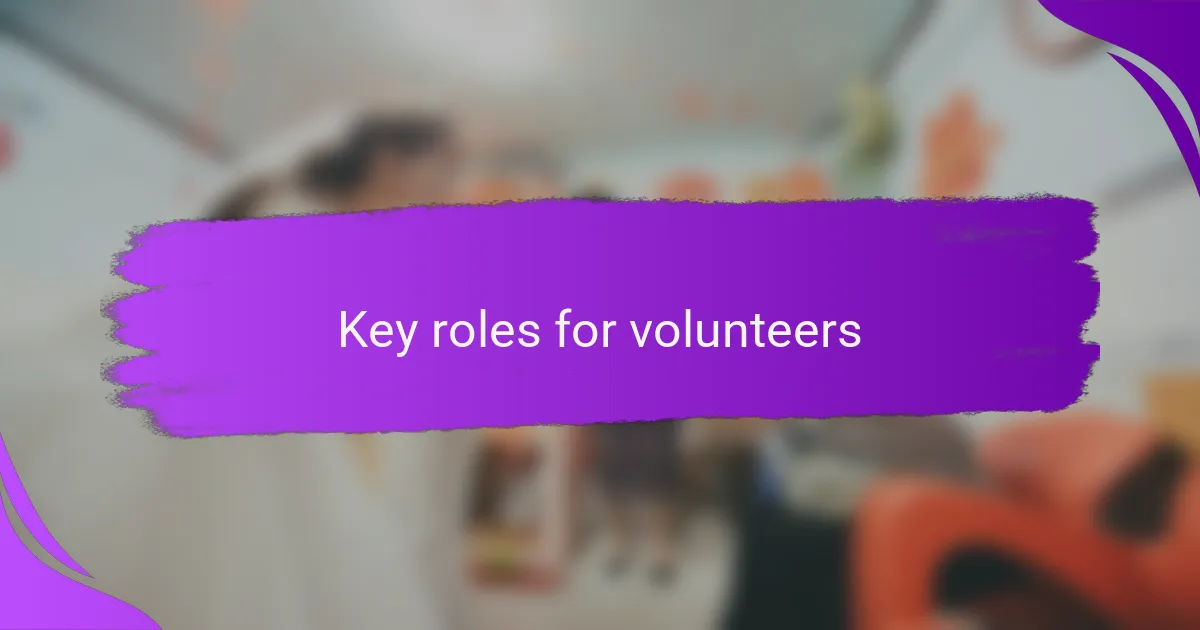
Key roles for volunteers
When it comes to managing volunteers during festivals, defining key roles is crucial. I’ve found that assigning specific responsibilities not only keeps everything organized but also empowers volunteers. For instance, I once had a volunteer dedicated solely to artist liaison tasks, which made communication smoother and created a more professional atmosphere.
Another important role is the crowd management team. I remember one festival where our crowd management volunteers played a pivotal role in ensuring safety while enhancing the overall experience for attendees. Their ability to engage with guests and handle situations with confidence put everyone at ease.
Below is a comparison table outlining key roles for volunteers:
| Role | Responsibilities |
|---|---|
| Artist Liaison | Communicates with artists, manages schedules, and ensures their needs are met. |
| Crowd Management | Monitors crowd behavior, ensures safety, and provides information to guests. |
| Setup and Breakdown | Aides in setting up stages, managing sound equipment, and dismantling after events. |
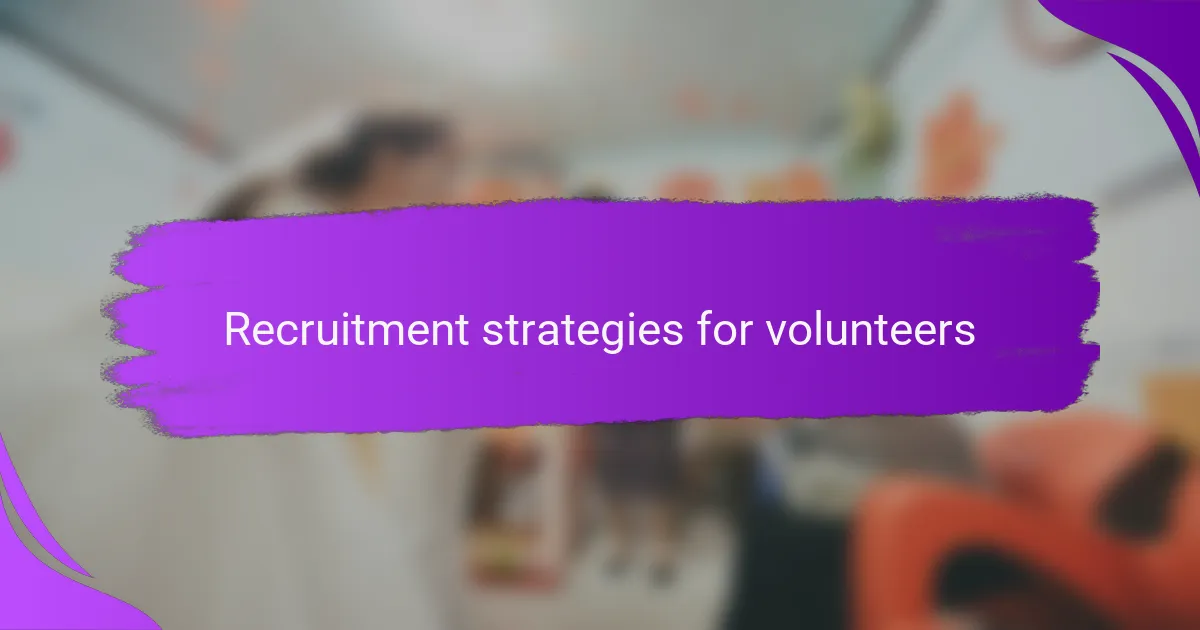
Recruitment strategies for volunteers
When I think about recruitment strategies for volunteers, I often reflect on the excitement of bringing like-minded individuals together. For our festivals, I found that tapping into local communities, such as universities and social clubs, made a significant impact. When I personally reached out, sharing my passion for the event and the joy it brought to participants, it created an immediate connection and enthusiasm among potential volunteers.
To effectively attract volunteers, I recommend the following strategies:
- Leverage Social Media: Use platforms popular among your target demographic to spread the word.
- Offer Incentives: Create benefits, like free entry to the festival or exclusive merchandise, to draw interest.
- Network Locally: Collaborate with local organizations or clubs to reach individuals who are already engaged in similar activities.
- Host Info Sessions: Organize casual meetups to explain the role and answer questions, fostering a sense of community.
- Testimonials: Share stories from past volunteers about their rewarding experiences to generate excitement.
By utilizing these strategies, you’ll find it much easier to build a dedicated and enthusiastic volunteer base.
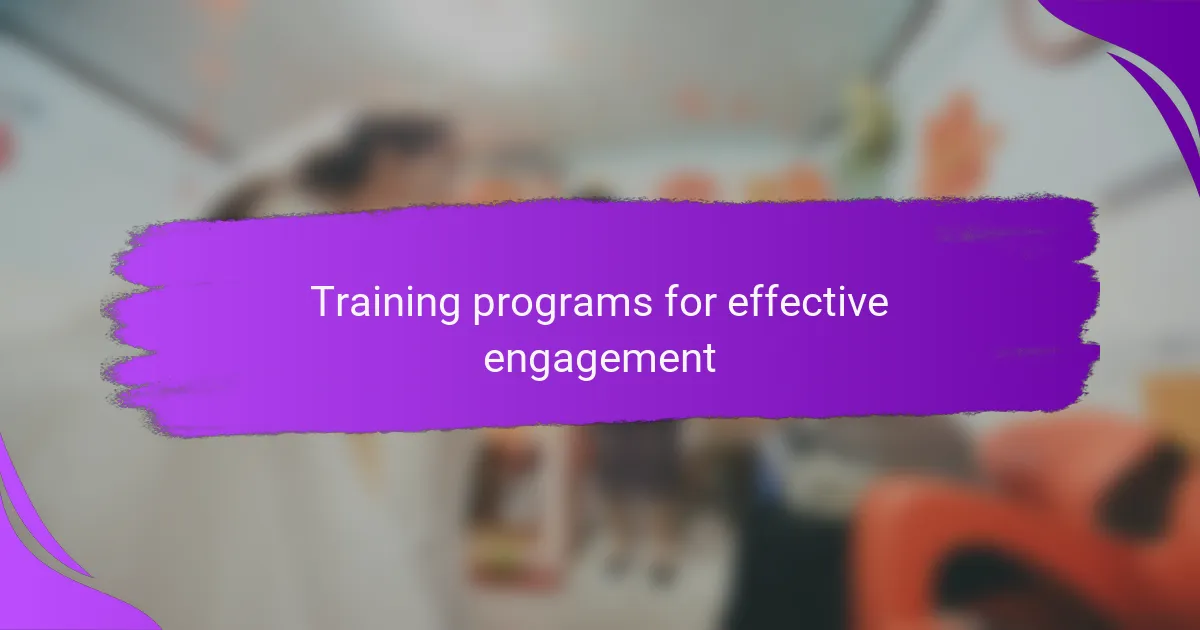
Training programs for effective engagement
When it comes to managing volunteers during festivals, effective training is crucial for fostering engagement and ensuring smooth operations. I’ve found that investing time in comprehensive training programs not only equips volunteers with the necessary skills but also instills a sense of confidence. I remember one festival where, after a solid training session, volunteers approached their roles with enthusiasm, transforming the atmosphere in the process.
To maximize the impact of these training programs, I recommend incorporating the following elements:
- Clear role descriptions to set expectations
- Interactive workshops that encourage participation
- Team-building exercises to foster camaraderie
- Continuous feedback loops to address concerns
- Recognitions or incentives to motivate and reward effort
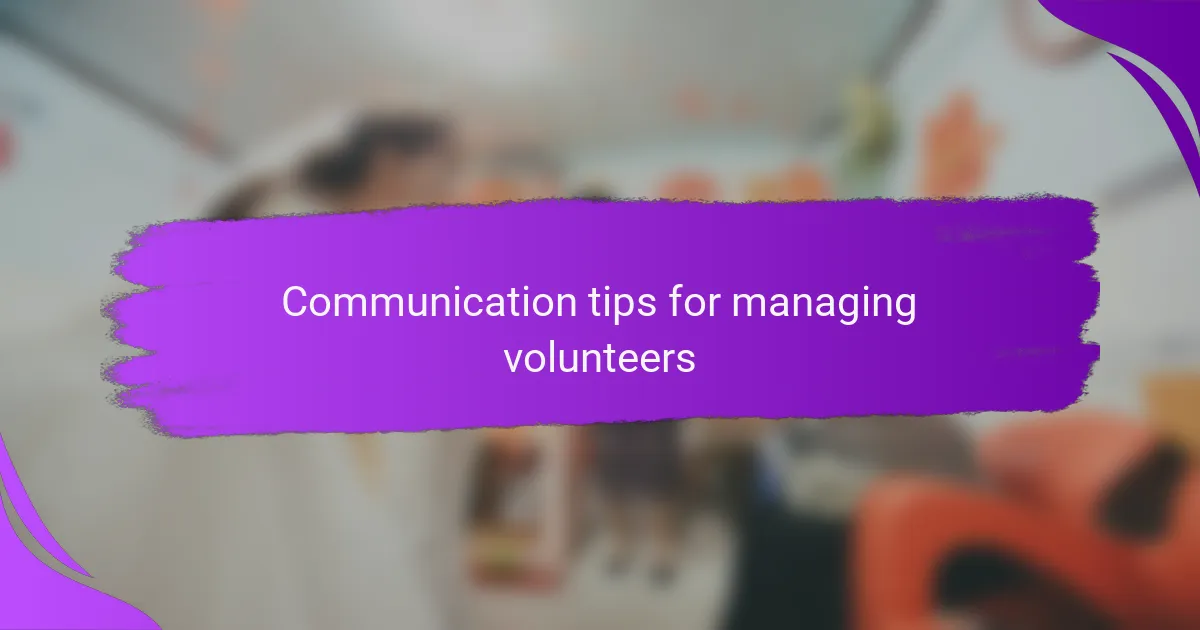
Communication tips for managing volunteers
Effective communication is essential when managing volunteers, especially in a high-energy environment like a festival. I’ve found that clear expectations set from the start can alleviate confusion down the line. For instance, I make it a point to hold an informal briefing before the event begins to encourage questions and foster a sense of team spirit.
Being approachable and available can make all the difference. I remember a time when a volunteer faced a challenge with their assigned task. By simply being there to listen and offer support, I saw them transform into an enthusiastic contributor. It’s moments like these that remind me of the importance of open lines of communication.
Using a variety of communication methods, like text updates and a chat app, keeps everyone in the loop. This way, volunteers feel connected and involved, which is crucial for a successful event.
| Communication Method | Advantages |
|---|---|
| In-person Briefings | Builds rapport and allows for immediate feedback |
| Text Updates | Fast and keeps everyone informed in real time |
| Chat Apps | Fosters ongoing communication and support |
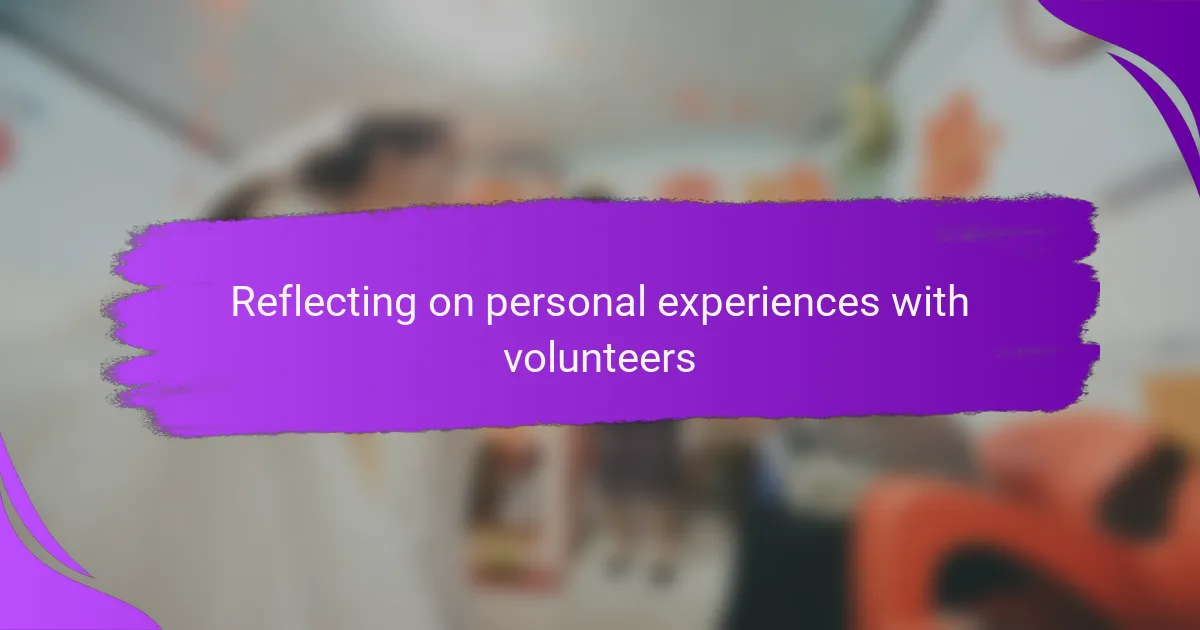
Reflecting on personal experiences with volunteers
Reflecting on my experiences working with volunteers during festivals truly shapes how I view teamwork and community spirit. One festival in particular stands out to me—our team was running behind schedule, and I watched as volunteers stepped up under pressure. Their faces showed determination, and it was rewarding to see how quickly they rallied to help each other.
I’ve learned that clear communication is essential, especially in a bustling environment like a festival. Volunteers need to feel valued, so I made it a point to acknowledge their hard work consistently. Here are some key takeaways from my experiences:
- Always provide clear instructions and roles to avoid confusion.
- Establish a supportive environment where volunteers feel comfortable asking questions.
- Recognize and appreciate their efforts publicly; it boosts morale.
- Foster team bonds through icebreaker activities before the event.
- Regularly check in with volunteers during the event to address any issues immediately.
